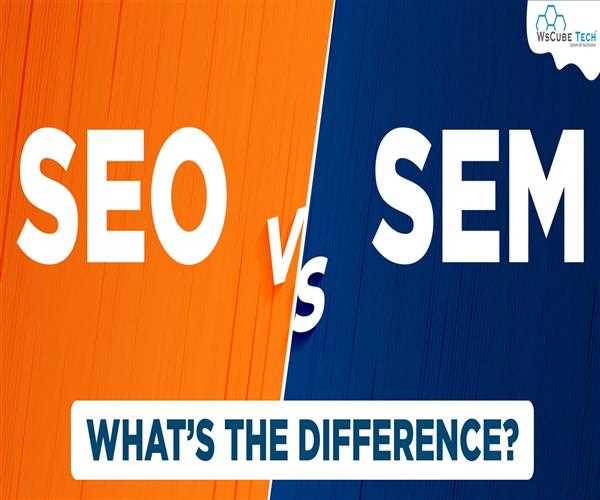SEO (Search Engine Optimization) and SEM (Search Engine Marketing) are both important for improving the online visibility and search engine rankings of a website. However, they are two distinct strategies, and the one that is better for the long term depends on the specific goals and resources of a business.
SEO refers to the practice of optimizing a website's content and technical aspects in order to improve its visibility and ranking in organic (unpaid) search results. The goal of SEO is to attract qualified traffic to a website through the use of targeted keywords and other on-page and off-page optimization techniques. SEO can be a long-term strategy, as it can take time for the efforts to bear fruit and for a website to achieve high rankings in search results.
SEM, on the other hand, refers to the use of paid advertising to improve a website's visibility in search results. This can include the use of PPC (pay-per-click) ads, which appear at the top of search results and are marked as 'sponsored.' SEM can be a faster way to improve a website's visibility in search results, as ads can be targeted to specific keywords and can start appearing almost immediately. However, SEM requires ongoing investment in order to maintain high visibility, as the ads will stop appearing as soon as the advertising budget is exhausted.
So, which is more effective: SEM or SEO? The answer is that it depends on the goals of your business and the resources you have available.

Here are a few things to consider:
Cost: SEM can be more expensive than SEO, especially if you're using PPC advertising. While you'll need to pay for each click on your ad, you'll only pay if the user actually clicks on your ad, so you have the potential to reach a targeted audience at a lower cost. With SEO, you won't have to pay for each click, but you'll need to invest time and resources into building up your website's ranking and authority.
Speed: SEM can be faster than SEO at driving traffic to your website. With PPC advertising, you can start getting traffic almost immediately after setting up your ad campaign. With SEO, it can take weeks or even months to see significant results, as it takes time for search engines to crawl and index your website.
Targeting: SEM allows you to target specific keywords and demographics, whereas SEO is more of a long-term play and it's harder to target specific keywords or demographics.
Sustainability: SEM is a paid strategy, which means you'll have to keep paying to maintain your visibility. With SEO, the results are more sustainable, as you'll continue to rank well as long as you have a well-optimized website and a strong online presence.
Ultimately, the best approach is to use a combination of both SEM and SEO to maximize your online presence and drive qualified traffic to your website. By using SEM to drive targeted traffic in the short term and SEO to build up your website's ranking and authority over the long term, you can create a solid foundation for your online marketing efforts.